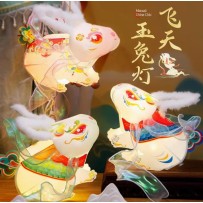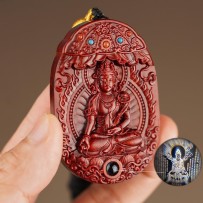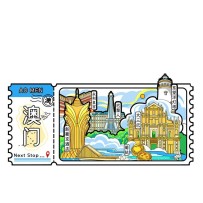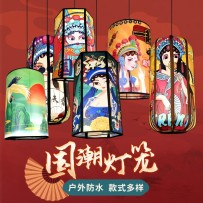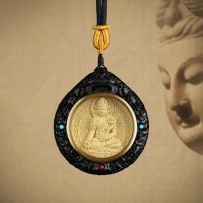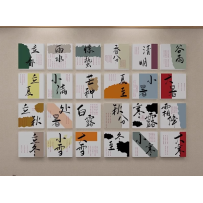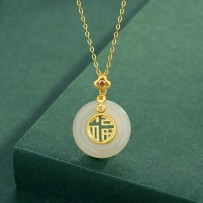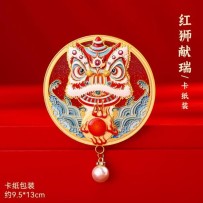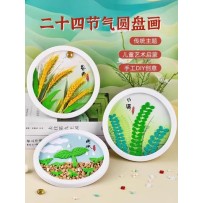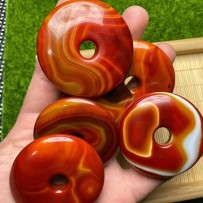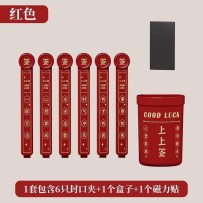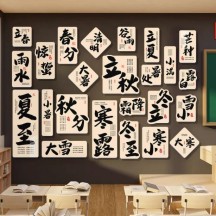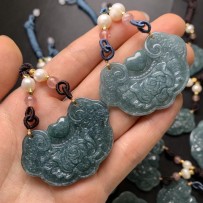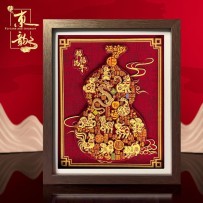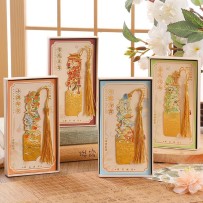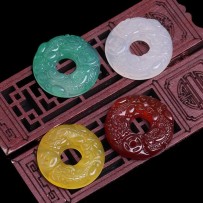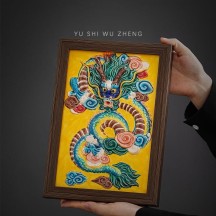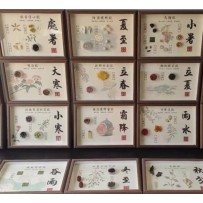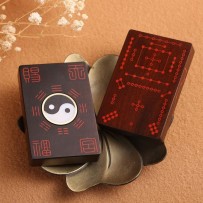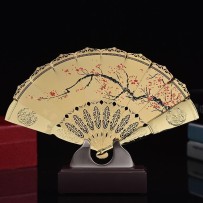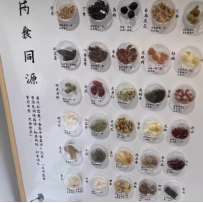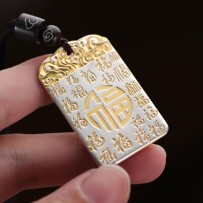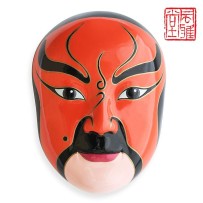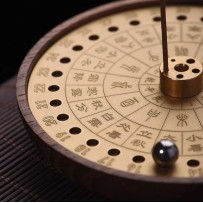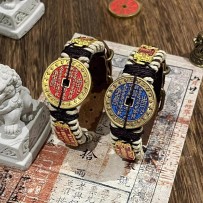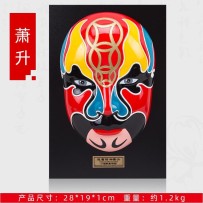Subcategories
Active filters
The idea of the guardian deity of the zodiac is that according to the ten heavenly stems and twelve earthly branches, the causal relationships of the 12 zodiac signs, and the mutual generation of the five elements of "earth, water, fire, wind, and space", the 12 zodiac signs are blessed by eight Buddhas and Bodhisattvas.
It is figuratively called the "birth Buddha", which is the guardian deity of the zodiac.
Buddha and Bodhisattva not only have a heart of compassion to save the world, but also a heart of enlightenment and awakening to others, protecting all living beings.
Fridge magnets are small yet delightful cultural and creative products. They serve not only as decorative items but also as carriers of travel memories, expressions of emotion, and even conveyors of cultural messages.
The idea of the guardian deity of the zodiac is that according to the ten heavenly stems and twelve earthly branches, the causal relationships of the 12 zodiac signs, and the mutual generation of the five elements of "earth, water, fire, wind, and space", the 12 zodiac signs are blessed by eight Buddhas and Bodhisattvas.
It is figuratively called the "birth Buddha", which is the guardian deity of the zodiac.
Buddha and Bodhisattva not only have a heart of compassion to save the world, but also a heart of enlightenment and awakening to others, protecting all living beings.
Fridge magnets are small yet delightful cultural and creative products. They serve not only as decorative items but also as carriers of travel memories, expressions of emotion, and even conveyors of cultural messages.
The idea of the guardian deity of the zodiac is that according to the ten heavenly stems and twelve earthly branches, the causal relationships of the 12 zodiac signs, and the mutual generation of the five elements of "earth, water, fire, wind, and space", the 12 zodiac signs are blessed by eight Buddhas and Bodhisattvas.
It is figuratively called the "birth Buddha", which is the guardian deity of the zodiac.
Buddha and Bodhisattva not only have a heart of compassion to save the world, but also a heart of enlightenment and awakening to others, protecting all living beings.
Fridge magnets are small yet delightful cultural and creative products. They serve not only as decorative items but also as carriers of travel memories, expressions of emotion, and even conveyors of cultural messages.
Ping An Kou is a traditional Chinese jade ornament. It is round and flexible in appearance, which conforms to the "doctrine of the mean" in traditional Chinese culture. In ancient times, it was called "Bi" and has the effect of nourishing the body. In modern times, it is often given to lovers, relatives, and friends as a gift to wish for peace.
Fridge magnets are small yet delightful cultural and creative products. They serve not only as decorative items but also as carriers of travel memories, expressions of emotion, and even conveyors of cultural messages.
Ping An Kou is a traditional Chinese jade ornament. It is round and flexible in appearance, which conforms to the "doctrine of the mean" in traditional Chinese culture. In ancient times, it was called "Bi" and has the effect of nourishing the body. In modern times, it is often given to lovers, relatives, and friends as a gift to wish for peace.
The meaning of a "fortune slip" refers to the act of drawing a message to predict the future or seek insight into good or bad fortune—essentially a form of divination. It is often seen as a symbol of hope, offering spiritual comfort in times of difficulty, and can also serve as a way to relax and lighten one’s mood.
The patterns on jade pendants are extremely delicate and varied, and through the patterns, we can understand the rich cultural connotations, production techniques, and social and economic environment of the time.
This product is inspired by the "gourd," which serves as the central design element. Combined with meaningful text, it incorporates characteristics and customs of traditional Chinese festivals to create a joyful and harmonious festive atmosphere. The overall design features a golden color scheme, symbolizing prosperity and good fortune. It creatively integrates hollowed three-dimensional imagery with traditional paper-cutting, a form of intangible cultural heritage, resulting in a unique and artistic decorative piece.
Ping An Kou is a traditional Chinese jade ornament. It is round and flexible in appearance, which conforms to the "doctrine of the mean" in traditional Chinese culture. In ancient times, it was called "Bi" and has the effect of nourishing the body. In modern times, it is often given to lovers, relatives, and friends as a gift to wish for peace.
Among the Four Divine Beasts, the Azure Dragon holds significant symbolic meaning and cultural value. It represents power and authority, protection and blessings, morality and wisdom, as well as cultural heritage and a sense of national pride.
The Hetu and Luoshu are two mysterious patterns handed down from ancient China. They contain profound principles of the universe and astrology and are known as the "Magic Cube of the Universe". They are the source of Chinese culture, Yin-Yang and the Five Elements. The phrase comes from the Book of Changes, "The Hetu and the Luoshu". He refers to the Yellow River. Luo refers to the Luo River.
Chinese fan culture carries a profound cultural heritage and is an integral part of the nation's traditions. Beyond being used for cooling, fans also serve as props in dance and stage performances, symbolizing friendship and connection. They make thoughtful gifts for friends, family, and international guests. Today, fan decorations are increasingly found in homes and have gradually evolved into objects of artistic appreciation, greatly enhancing their cultural and aesthetic value.
The Peaceful and Trouble-free plaque is a type of jade pendant. Because the entire jade plaque is not carved, there is a saying in the jade industry that things without any carvings are called "nothing", so the jade plaque borrows the meaning of "peaceful and trouble-free". "Peaceful and Trouble-free" means peace and everything goes well.
Facial makeup in Peking Opera is a decorative art form that combines dots, lines, shapes, and colors in an organic way. With vibrant hues, elegant designs, and exaggerated stylization, it vividly and expressively portrays the appearance and personality traits of theatrical characters. This art form reflects the aesthetic creativity and cultural spirit of the Chinese people.
The talisman money is a Taoist prayer object. These coins are cast with patterns of the Eight Diagrams, immortals, Taishang Laojun, and the God of Thunder. The mountain ghost flower money is a carrier used by Taoist priests in the Qing Dynasty to cast spells to subdue demons and exorcise ghosts. It can also be called a magic tool. After being consecrated by Taoist priests, people are requested to hang it in their homes or carry it with them to ensure safety.
Facial makeup in Peking Opera is a decorative art form that combines dots, lines, shapes, and colors in an organic way. With vibrant hues, elegant designs, and exaggerated stylization, it vividly and expressively portrays the appearance and personality traits of theatrical characters. This art form reflects the aesthetic creativity and cultural spirit of the Chinese people.



